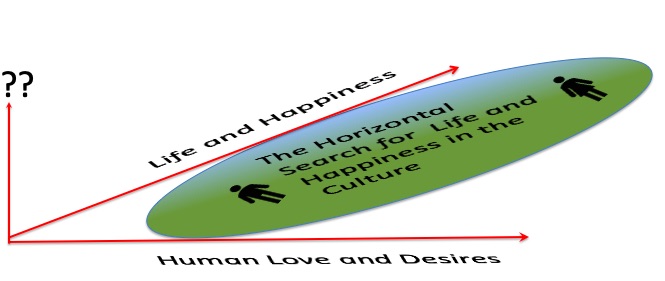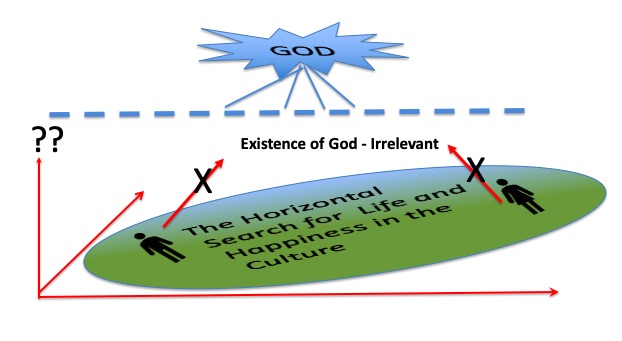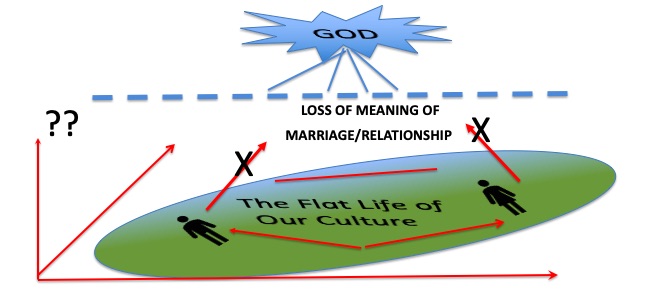WHY BOTHER WITH A CHRISTIAN MARRIAGE? PART I HUMAN REASONS FOR MARRIAGE

Marriage is in a crisis of universal proportions. The decline in marriage, since the 1960’s, at all societal and religious levels has been nothing short of catastrophic . (See my blog on “Sexual toxicity”: https://rvthomann.com/blog/category/moral-toxicity/ .) The consequences of this increasing lack of desire to enter into marriage, especially a Christian marriage are serious and lethal. The family suffers immediately – in fact, the family as comprised of husband wife, father and mother and children becomes more and more an anomaly and increasingly under attack from a culture that demands a misguided freedom to live life as one chooses. In fact, the perspective is direct: “Don’t pour me into the mould of the previous generation. I am free to choose to live as I want.”
My wife Joan and I, as Catholics, have lived more than six decades in the Sacrament of Marriage. As a Permanent Deacon in the Catholic Church, I have become acutely aware in recent decades of this attack on Marriage and just have never experienced the current cultural disregard and rather cynical dismissal of a man and woman willing to give their life to each other. The beauty of Christian Marriage, a life open to Christ as the nature that joins a man and woman together has been obscured. Substitute forms of relationships are offered as alternatives to Marriage as a way of life that is so often portrayed as binding, chaining and filled with stress and battles.
All of this prompts these multiple blogs on Christian Marriage. Part I looks at the Human Reasons for getting married while Part II announces the Christian Reasons for marriage. Part III provides answer to the question of why bother to enter a Christian Marriage. So if you have been doubting about Marriage in gneral and Christian/Catholic Marriage in particular, we offer these reflections. We hope that the blogs provide an opportunity to think about your life, individually as well as a couple. So let us begin with the crucial opening question.
FIRST QUESTION: WHY BOTHER GETTING MARRIED ANYWAY?
I was recently speaking with a young Catholic adult in his early thirties who was going to move into an apartment with his girlfriend. It made economic sense. Why live in two separate places when you could save a lot of money by moving in together? When asked about whether marriage was a possibility, the pause was revealing. There was an obvious interest in the whole area of Christian Marriage but a variety of questions arise quickly. Indeed, many couples today, Catholic or otherwise face the principal operative questions:
Why should we get married? Why should we even stay married?
What’s the point of it all anyway?
Divorces are so messy! So why get entangled in marriage with the distinct possibility of painful and life long resentments?
“We’re doing real fine–we love each other, we think pretty much alike, at least most of the time.”
Then the crushing observation often made by couples living together: “Besides we don’t see much difference between those couples who are married and those who have chosen a different couple life style.” All of this has prompted me to reflect on this whole question of marriage. My focus is on Catholic Christian Marriage but the conversation is equally directed towards couples who haven’t seen the inside of a Church in a long time and do wonder about the motivation, either from a strictly human viewpoint or from a Christian perspective. We can then look at two groups of reasons related to marriage: the Human/Cultural Reasons for Marriage and the Christian/Catholic Reasons. In this first Part, let us open up the reasons for getting married from the purely Human or Cultural rationale.
THE HUMAN/CULTURAL REASONS FOR MARRIAGE
So if I were to ask a Gen Z or Millenial: Aside from any religious reasons, why should you bother getting married anyway? Here are some of the expected responses.
“Marriage gives me a kind of guarantee and commitment that we will stay together”
“If we break up, there is a legal route for distributing our assets.”
“My parents would be so disappointed if we didn’t get married.”
“I always wanted a wedding–the ceremony, reception, planning, dresses. Tuxes, bridesmaids, groomsmen.
“There is something I feel that it is just not right to continue to live together without getting married.”
Marriage does reveal a degree of willingness on the part of man and woman to live their lives together and to that degree, show an openness to determine their future in a most definitive way. But guarantees and commitments are easily broken and divorce then becomes very messy. The reason to get married so that the parents are not disappointed is simply not convincing. The couple usually sees it all as simply that the parents eventually have to adjust to a new culture and they’ll get used to it, even if they don’t accept it.
The glamour surrounding a wedding, its sense of romance and love, its festive nature, the bringing of family together, the excitement of the day are truly compelling human reasons, usually more for the woman than the man. Yet as we will see, a marriage entered into for such external reasons is on a rather spongy and fragile foundation especially as the realities of marriage present themselves to the couple.
Regarding the last reason: the “rightness” of marriage in the Christian culture is to reserve sex only for marriage and to be open to life, i.e., to be open to having children. This is a “rightness” that is easily overcome by the overwhelming voice of the young adult culture which not only supports living together but ridicules the very idea of marriage. If this wasn’t the case, then there would be no need for the question of this blog to be asked in the first place.
That these reasons coupled with the “good life” are not compelling enough to move a couple from living together to marriage is pretty clear from the increasing number of couples who live together for increasingly longer periods of time.

Why are these reasons not terribly convincing for many couples.? ? Well, to live in our culture today is to live in a virtually flat, horizontal, two-dimensional environment. This is an environment that seeks satisfaction and happiness from a world that is disconnected from any dimension beyond what can be seen, measured, tasted or experienced. So the couple live their daily life in a highly bourgeois style which ends up being “flat”. The couple has been convinced by the culture (and by each other) that to the degree to which they express and give their human love and desires to each other (the first dimension) that Life and Happiness (the second dimension) will result. So there is a constant search by the couple for life and a kind of happiness from the culture: from health and physical well-being, fine dinners, sex, vacations, work, home and fashion. This is not to say the fine dinners or vacations or nice clothes are “bad” or that sex is opposed to anything good. But in the flat life of the culture, these aspects of living are offered as the true happiness and the means to achieve some comfort in the midst of a world of combat and battle.
The difficulty then is that in trying to obtain a measure of happiness and comfort, the couple looks to the other for love, for affirmation, for hope. But, in this two dimensional life (i.e., the dimension of the human, rational life and the dimension of happiness in the culture of the times), this love of the man or woman tends by its nature to be focused on itself. “I will love you but I expect to be loved in return”. In the final analysis, this flat, bourgeois life is centered on the ego – a weighty, heavy, ego that looks constantly to be served in a great variety of ways.
All couples seek happiness, as do all humans. But, this “happiness” is seen and ranked according to the degree to which the world satisfies their desires. “Serve me!” is the underlying mentality. But this is so difficult to actually see in each particular case and even when this “serve me” attitude is recognized and acknowledged, it is is not at all seen as detrimental. In fact, it is so often seen as one’s right. Then the guy looks at his woman with a view of how lucky she is to have such a a great guy as a companion or as lover.
It is interesting though that when this view, this understanding of the flat life of seeking always individual pleasure is presented to couples, there is an initial rejection. “What’s your problem? We like the good life, a life of joy, pleasure and a good time. That’s the trouble with you Christians, you really don’t like to live a happy life!”
So the life focus of our couple is on the comfort, good living, maybe a child or two or maybe no children, maybe a dog, travel and good eating. Marriage is a possibility but not a particularly attractive one. After all, what’s the point? We love each other and are continually attracted both sexually, intellectually and spiritually to each other.
The Great Gift of CRISES IN A RELATIONSHIP

But this rejection of marriage is a result of a certain blindness to the reality of the life of the couple. This reality is revealed when the couple faces some crisis in their lives. Some unforeseen and uncontrollable event or situation enters into the relationship. Perhaps a sense of jealousy, of disappointment in the other, a loss of caring for each other, a financial decline. The painful and hurtful times of arguments, fights, differences of opinion, of objectives. There is nothing more painful for a couple than to shout at each other in anger, frustration and resentment: “I can’t take you anymore! What’s the point of all this anyway? I don’t love you! I’m outta here!”
Have you had this experience? We have and it hurts – a lot! The two dimensional life style then begins to fracture. What before was a source of inner joy and closeness becomes instead a source of bickering, disagreements, judgments. What formerly were intimate dinner occasions devolve into a trial of uncertainty and doubt. It is clearly hard to see at first, that these confrontations between us as a couple is really a gift. It forces the couple, painfully no doubt, to ask some fundamental questions. How come we fight and hurt each other so meanly when we have so often expressed our love for each other? Where are we going in our relationship? What is the source of this failure to see and accept each other in love?
THE DIMENSION OF GOD in Couple Relationship
The source of this suffering and failure in loving is in the two dimensional flat life of the culture. Another dimension, another meaning and origin, another depth to the relationship between a man and woman is missing. This loss of meaning is experienced but not often recognized or acknowledged. The fundamental source of failure, of loss, of unhappiness is a a disconnect from another dimension: the upward looking dimension of the presence of God. Deep within the human being, there lies a sometimes dim awareness of a relationship with another dimension, a transcending presence that somehow is felt and often ignored. The recognition of God is blocked and sealed off by the culture which constantly presents a way of life that relies only on oneself.

Then the existence of God becomes irrelevant. This is the most serious consequence of living the flat life of today’s culture – a reliance on oneself and a kind of disdain for an upward look outside of the horizontal life.
When the existence of God is questioned, doubted and even denied, then another consequence follows: the loss of the meaning of my relationship with another. This “meaning” is rooted deeply within both the man and the woman and is constantly presenting itself in the form of central questions: who am I? Where am I going? Where are WE going?

That last reason that we listed under the Human and Cultural Reasons for Getting Married of “just not feeling right in living together without marriage” is perhaps the most compelling reason for a couple to begin questioning whether their current relationship is consistent with some kind of sense of destiny or mission. In speaking with Catholic couples contemplating marriage, the movement from the purely human reasons for marrying to a recognition that their marriage is an event of God acting in their lives is a totally grace-filled moment.
Let us summarize. We have introduced the dimension of God into this first look at answering the question of why bother getting married. We will look in Part II at the great gift God gives to a couple by allowing them to experience a crisis, to fight, to argue and to cry. Why is this so? Because in the midst of the storm of marital and relational suffering, the fundamental questions about the meaning of why they are a couple emerge. So we invite you now, since you have come this far, to take a look at Part II of Why Bother With a Christian Marriage? There you will discover the answer to the lead question of this blog and then discover the most astounding and beautiful reality of the Christian Marriage. The third missing dimension will be revealed as a reality that gives meaning to the existence of a couple and most importantly, the mission of the couple which is fulfilled in Christian Marriage.

Out of space?
No problem!
Try Dropbox Business!Try it free


